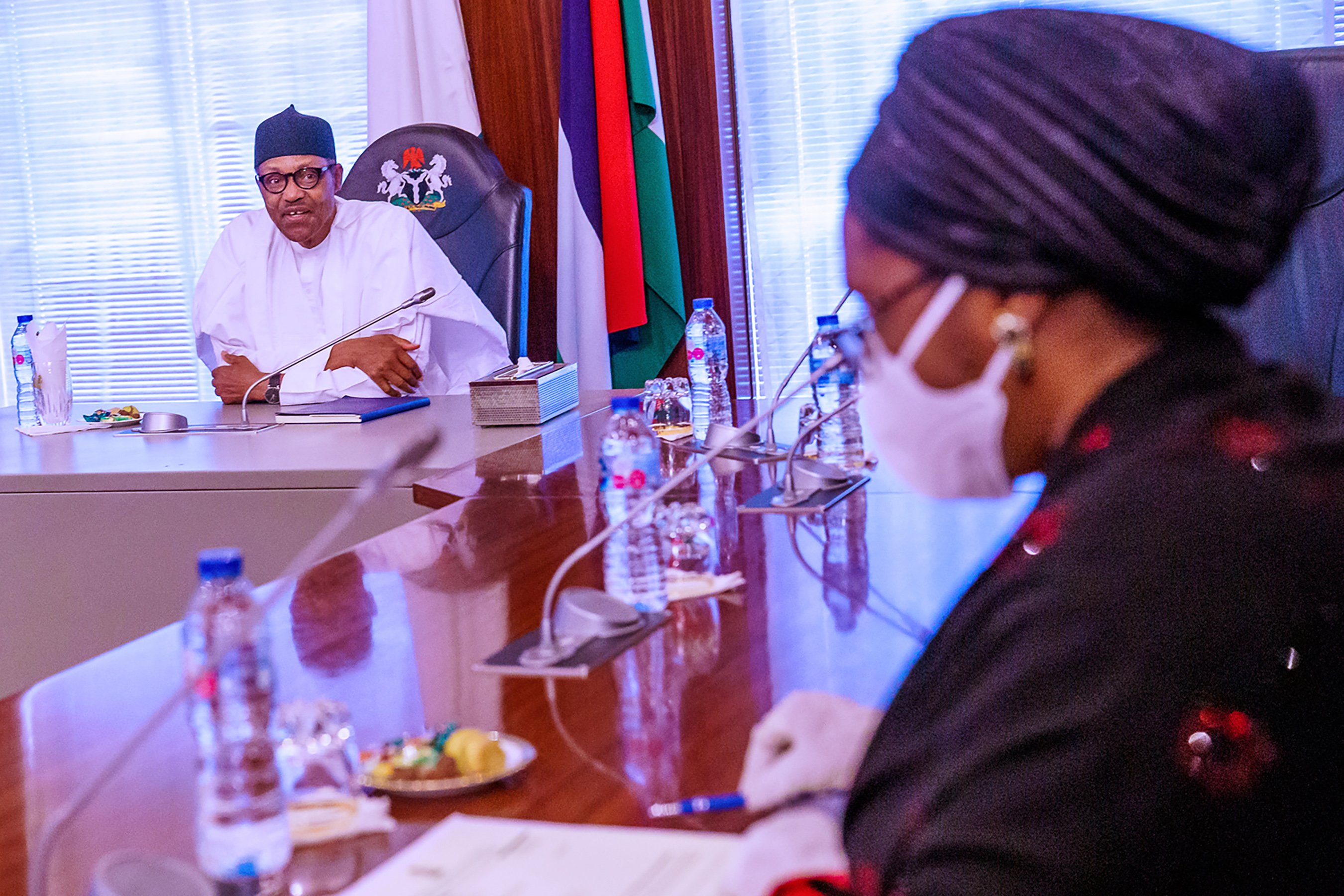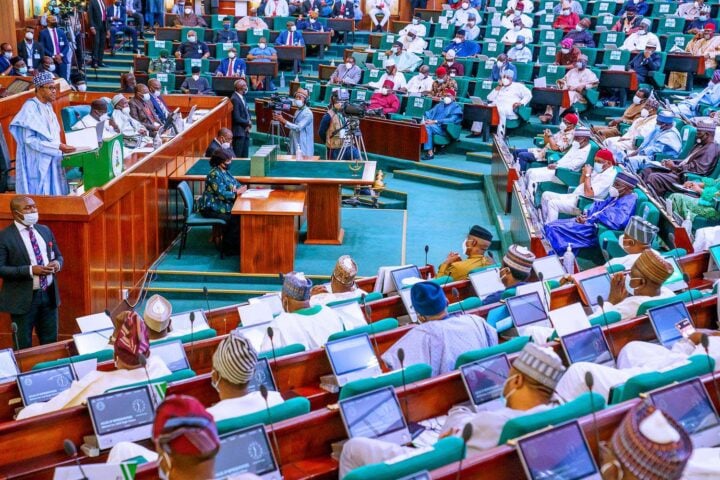PRESIDENT BUHARI METS CORONAVIRUS COMMITTEE ON THE ECONOMY B. President Muhammadu Buhari receives briefing from the Minister of Finance, Hajiya Zainab Ahmed during a meeting with the Presidential Committee to Review the Impact of Coronavirus on the Economy held at the State House Abuja. PHOTO; SUNDAY AGHAEZE. APRIL 2 2020
A new report by Coronation Merchant Bank has projected that the federal government’s domestic borrowings in 2022 will increase by N2.6 trillion.
According to the Debt Management Office (DMO), the federal government’s total domestic debt was N18.2 trillion at the end of the third quarter (Q3) of 2021.
The report also estimated that inflation and gross domestic product (GDP) growth rates would be 13.88 percent and 2.6 percent, respectively, in 2022.
CoronationMB said the country might experience weak portfolio investment inflows due to negative real interest rates as the headline inflation rate remained in double digits.
Advertisement
These projections were contained in the bank’s economic review and 2022 outlook for Nigeria.
The report was released on Tuesday during the virtual fourth edition of the bank’s interactive session series themed ‘Nigeria’s Economic Landscape – a Blend of Optimism and Uncertainty’.
“Given the current elevated oil price, compared with the oil price benchmark in the 2022 budget, there might be room for the FGN to source funds for fuel subsidy from its windfall/savings,” the report reads.
Advertisement
“Overall, we expect the budget deficit this year to be higher than the current projection and that domestic borrowing could exceed N2.6 trillion. This implies upward pressure on FGN bonds and NTB yields.
“For 2022, we expect the impact of positive base effects on the headline inflation rate to wither away by the second quarter of the year.
“Looking ahead, on the back of specific factors which could result in upward pressure on prices, we have imposed visible fluctuations in the m/m inflation rate using a few assumptions.
“These include insecurity, modest exchange rate depreciation, hike in electricity prices, electioneering and the possible N10 per litre excise duty imposed on non-alcoholic carbonated and sweetened beverages.
Advertisement
“We see average inflation for FY 2022 at 13.88 per cent y/y and 13.91 per cent y/y at end-December 2022.”
While presenting the report at the webinar, Chinwe Egwim, chief economist at Coronation Merchant Bank, said Nigeria’s economy has posted GDP expansion for four quarters since its last recession recorded in 2020.
According to her, the current growth rate levels are unable to halt the steady decline in incomes and the rise in poverty.
“This year, we expect some fiscal stimulus on the back of the FGN’s capital expenses. Furthermore, we anticipate investment spending in targeted sectors,” she said.
Advertisement
“Looking ahead, overall pre-election expenditure towards the 2023 general elections should also contribute to the growth drive.
“For 2022, we expect a GDP growth of 2.6 per cent year-on-year (y/y). Looking ahead, on the back of specific factors, we expect upward pressure on prices.
Advertisement
“Overall, consumption patterns are relatively better and are almost mirroring pre-pandemic levels. However, we must note that consumer pockets are still steadily being rebuilt.”
In his remarks, Biodun Adedipe, a business management consultant, emphasised the importance of the non-oil sector in Nigeria’s economic growth.
Advertisement
“We have seen the pattern in the last 10 years of non-oil sectors accounting for between 77 and 82 percent in terms of contribution to our GDP, while the oil sector has repeatedly accounted for less than 10 percent,” Adedipe said.
“It is now obvious that what drives the economy is the non-oil sector and that is where we will have to pay a lot of attention.”
Advertisement
Add a comment






